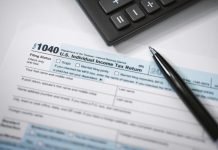

If you’re in the market to buy a house, you already know you need a real estate agent, a mortgage lender, a down payment and, well, a house to buy. While finding the right house can be a tough but exciting challenge, it can also be full of heartbreak.
You might find a beautiful home, but, surprise, it needs a lot of expensive work you didn’t initially see — a new roof, a new furnace or a tall fence since it backs up to a noisy business. The same is true for neighborhoods. Just like homes, neighborhoods can be beautiful and seemingly perfect, but there can be problems undetectable to the naked eye. But unlike homes, there’s no inspector to tell you what the problem spots are. Sure, a good real estate agent is there to help you choose a good neighborhood, but sometimes it’s good to do a little investigating on your own.
Here are 10 things you can start investigating to ensure your homebuying experience doesn’t come with a lot of surprises.
1. Crime Statistics
It’s a good idea to compare crime statistics among neighborhoods you’re interested in. Most local government websites keep a crime database you can search to check out crimes on your prospective block. You’ll be able to break down the statistics into categories like assaults, burglaries, vandalism, etc., so you can better understand the seriousness of any crime issues.
2. School Districts
Even if you don’t have kids, you might want to compare the quality of the schools across the neighborhoods you’re looking at for a couple of reasons. First, homes in areas with good schools typically appreciate at a higher rate, and, second, it could be an important feature to future buyers. Good schools could ultimately help you sell your home faster and at a higher price.
3. Mortgage Rates
Your home is quite likely the largest purchase you’ll ever make, and your mortgage the largest debt. You should make sure when you apply for a mortgage that you shop around at local banks and credit unions as well as bigger lenders and use all your offers to negotiate with your preferred lender. Make sure you try to get all of your mortgage inquiries done in a couple of weeks. This way, they’ll be grouped together and considered as one inquiry for credit scoring purposes.
4. Sex-Offender Registry
Having a registered sex offender in the neighborhood probably isn’t a highlight for any homebuyer. Knowing the number and proximity, however, can offer some peace of mind or help you decide another neighborhood might be more suitable. You can check out how many sex offenders live in your potential neighborhood on the National Sex Offender Public Website.
5. Property Taxes
To figure out how much home you can actually afford, you need to take into account all of the expenses, including down payment, closing costs and your annual property taxes. The Tax Foundation’s property tax tool lets potential homeowners to see how their property tax bills would stack up against other areas. You can also use this calculator to see how much home you can afford based on your credit standing.
6. Your Credit Scores
A less-than-solid credit score can really cost you when it comes to buying a home, so it can really pay off to raise your credit score to improve your mortgage scenario. First, you need to figure out where your credit score stands. You can get two of your credit scores for free every month on Credit.com.
This article originally appeared on Credit.com and was written by Constance Brinkley-Badgett.









